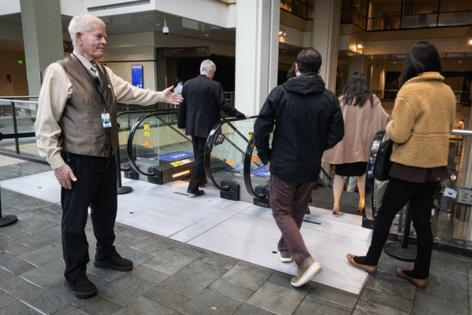Workers sue WA's biggest employers over limits on taking a second job
Published in Business News
Across Washington state, people have found creative ways to cobble together a livable income by working multiple jobs.
But some people seeking extra work find themselves facing an unexpected obstacle: their employers.
Many companies curtail the ability of their employees to “moonlight,” as the practice is commonly known, particularly for competitors. Think servers who work for multiple restaurants, or police officers who work as private security on the weekends.
Moonlighting bans usually take the form of provisions nestled in hiring contracts or policies that prohibit conflicts of interest. Worker advocates argue that these bans unfairly limit economic mobility for workers, especially those making the least.
This year, workers in Washington have filed dozens of lawsuits against some of the state's biggest employers over the right to take on additional jobs, including for competitors.
They argue that low-wage workers shouldn't be limited from taking on shifts for companies in the same sector, such as a retail employee working at two different apparel stores or a food worker picking up shifts at multiple restaurants.
“Anyone making minimum wage in Washington's largest cities knows that without a second job, it's virtually impossible to make rent and pay rising food costs,” wrote attorney Timothy Emery, managing shareholder of Emery Reddy, P.C., a law firm, in an email.
Across the Seattle area, people of all income levels choose to work multiple jobs for various reasons, including flexibility and extra income.
But workers paid the least have explicit protections for taking on extra work. Under state law, employers cannot restrict employees who make less than twice the minimum wage — totaling $33.32 per hour this year, $34.26 per hour next — from having other jobs at the same time.
Still, the same law recognizes that employers can expect a certain degree of loyalty. Using this carve-out, companies in Washington have historically been able to curtail employees from working for competitors in almost any capacity.
That may be changing.
In January, the state Supreme Court ruled that a moonlighting ban restricting “all kinds of assistance to competitors” was unreasonable. Employers in Washington can still expect some loyalty from workers, but they can’t impose blanket bans.
“In the court's view, a prohibition on doing anything for a competitor, direct or indirect, was essentially too broad,” said Jonathan Crook, a partner at Fisher Phillips, a law firm.
The economic ramifications of the ruling could be widely felt.
In theory, it means that most lower wage workers should be able to juggle multiple jobs at different competing companies, without having to worry about losing a source of income.
In practice, that’s not the case just yet.
Emery represented the plaintiffs in the landmark case that produced January’s ruling. According to him, some of Washington’s highest profile employers continue to include broad moonlighting bans in worker contracts.
Since then, he’s filed more lawsuits against companies, including Amazon, Alaska Airlines and Costco, challenging their restrictions on workers. In an email, Amazon spokesperson Eileen Hards disputed that any company policy violates any state law. (Alaska and Costco did not respond to requests for comment.)
Those cases may take months or even years to be decided. Emery hopes that once they are, workers will feel empowered to take on extra jobs within their field of expertise — a freedom that “dramatically improves workers' bargaining power and career options.”
©2025 The Seattle Times. Visit seattletimes.com. Distributed by Tribune Content Agency, LLC.












Comments